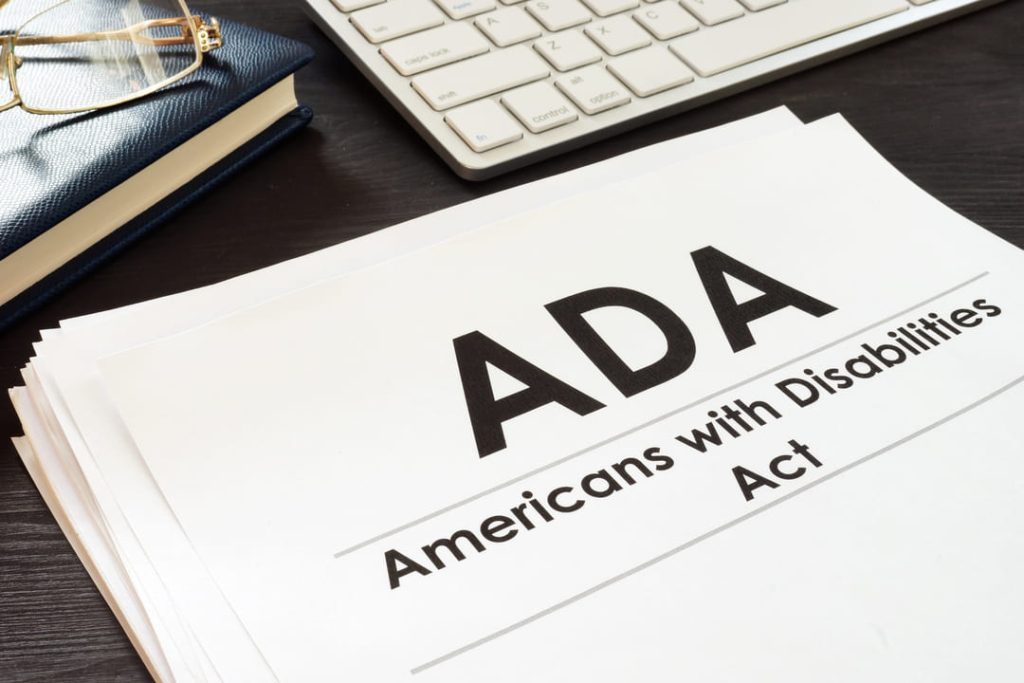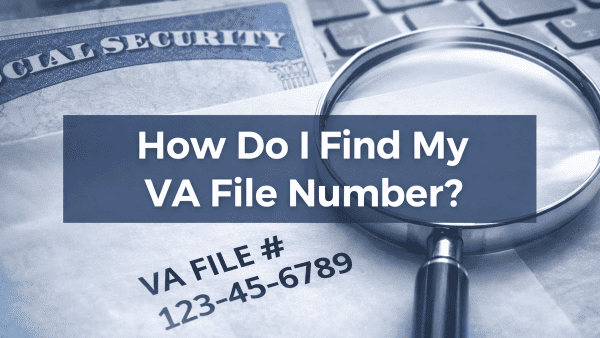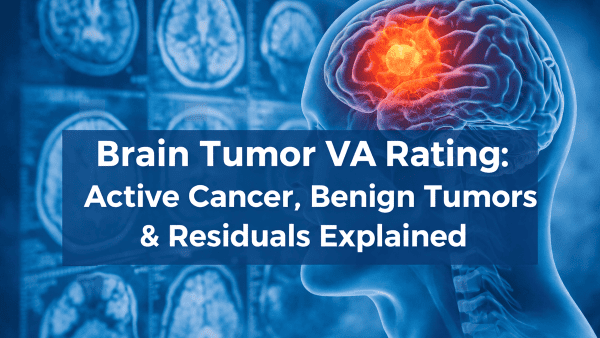Looking for Expert-Level VA Claim Answers?📱Call Us Now! 737-295-2226
Too many disabled veterans find themselves in difficult situations on the job–wanting to contribute and earn a living but dealing with employers who won’t give them a fair shake. Too many don’t know about the protections designed just for them.
In this article, we’ll explore two laws that protect disabled American veterans from employment discrimination:
- The Americans with Disabilities Act (ADA)
- The Uniformed Services Employment and Reemployment Rights Act (USERRA)
Table of Contents

Scenario 1: You’re in the final round of interviews for a job. Things are going smoothly, and you’re confident you have all of the qualifications. Beyond that, you’ve struck up a comfortable rapport with management, and you can feel that things are headed in a good direction. In the last interview, you’re offered the job.
As you start talking about scheduling, you let the team know that you may need flexibility on certain days of the month to accommodate counseling for your PTSD. After that, you receive a call telling you that the position was unexpectedly terminated, and the job is no longer available.
Scenario 2: Your sciatica pain is flaring, and your doctor says that sitting all day at work is part of the problem. You can still do your data entry job; you just need a standing desk. Your boss says that the budget is tight, and they can’t provide one. They suggest that you find another job if you can’t make things work with the usual desk configuration.

Employment Discrimination: Am I eligible for ADA?
The Americans with Disabilities Act has sweeping employment protections, but they don’t apply to every disabled veteran. In order to qualify for ADA protections, you must:
- Have a physical or mental disability that substantially limits your ability to engage in one or more major life activities (including walking, hearing, seeing, concentrating, etc.) This determination must not take into account accommodation measures. For example, you may be able to manage, thanks to medications, or a prosthetic limb, but your doctor must determine your disability based on how you perform without these accommodations. If you can’t walk without your prosthetic limb, you’re considered disabled.
- Have a record substantiating this disability
- Be able to meet a potential employer’s job requirements (with respect to education, training, on-the-job experience, skills, certifications, licenses, etc.)
- Be able to perform the fundamental duties of the job with or without reasonable accommodations
In 2008, the protections of the ADA were adjusted under the Americans with Disabilities Act Amendments Act. This change broadened the protections of the ADA to cover more military service-connected disabilities. Many veterans are surprised that things like major depressive disorder and PTSD can easily be covered under ADA protections. When in doubt, it’s always best to ask about your individual case. You may find that you qualify even if you weren’t expecting it.
What organizations does the ADA apply to?
The ADA applies to private employers as well as government employers (local and state) with 15 or more employees.
What about the federal government?
While the ADA doesn’t apply to the federal government, federal employees (and prospective federal employees) are covered by a comparable act known as the Rehabilitation Act of 1973 (Section 501).
What protections am I eligible for under the ADA?
An employer cannot treat an applicant or employee unfavorably in any facet of employment. This extends to everything from hiring to promotions to training to termination. They may not harass you or retaliate against you based on your disability.
If an employer inquires about your health, proceed cautiously. Your medical record should not be an open book for your boss (or potential boss). The ADA has strict limits about what type of medical information they can access.
What lengths must an employer go to accommodate my disability?
The ADA requires employers (and potential employers) to provide “reasonable accommodations” to help you apply for a job, perform the job, and enjoy equal “benefits and privileges” of the job. These requirements stand unless they cause “significant difficulty or expense.”
Reasonable accommodations may include:
- Accessible locations for job interviews, tests, etc. (for hiring and promotions)
- Accessible workspaces (including parking arrangements) or work-from-home options
- Accessible written materials (in large print, Braille, etc.)
- Accessible work equipment (one-handed keyboard for someone missing an arm, captioned phone for hearing problems, standing desk, etc.)
- Flexible scheduling to accommodate medical appointments
- Modified supervision (to include more detailed descriptions of work assignments, more frequent reminders or follow-up, written vs. oral instructions, etc.)

Can federal government agencies give preference to disabled veterans?
Yes, qualified veterans with and without disabilities should be given preference over other eligible applicants (under the Veterans’ Preference Act).
Can a private employer choose to hire me over others because of my VA disability?
Private organizations are not required to give preference to applicants with disabilities, but they may do so for affirmative action purposes.
The rules change for private businesses with a federal contract/subcontract that is equal to or exceeds $100,000 that took effect on or after December 1, 2003. These entities must give veterans priority for job openings and take affirmative action to employ and advance qualified disabled veterans.
Can an employer ask me if I am a disabled veteran?
As a general rule, employers shouldn’t ask about your medical history. However, they may invite you to share it if they are looking to take affirmative action to hire someone with a disability (either because they are required to do so or because they want to do so to benefit people with disabilities).
The employer must make clear that they are requesting this information solely in conjunction with their affirmative action efforts. They cannot require this information. Rather, they can invite applicants to voluntarily self-identify. The employer must keep this information separate from your application in order to protect your privacy on the matter.
Where does USERRA come in?
USERRA isn’t designed just to protect people with disabilities. It’s specifically designed against discrimination based on military status/obligations. USERRA is often invoked to safeguard reemployment rights for those who have left their civilian jobs to serve (think U.S. Reserve forces).
If the veteran becomes disabled during their service, or if their disability is aggravated in the course of their service, the employer must make reasonable efforts to return the veteran to their pre-service position.
If their disability renders them unqualified for this position, the employer must make reasonable efforts to help the veteran qualify for a job of similar pay and seniority. This may involve providing free training to the veteran. Whereas ADA applies to organizations with 15 or more people, USERRA applies to all employers, regardless of their staff size.

What should I do if I believe I have been discriminated against?
If you are experiencing employment discrimination (either as you apply for work or from your current employer), start by filing a complaint.
And if you are dealing with a service-connected disability that has not been appropriately rated by the VA, contact VA Claims Insider. We can support and educate you to get the VA disability benefits you are legally entitled to and connect you with a community of fellow veterans who will have your back all along the way.

Deserve a Higher VA Rating?
Book a no-obligation VA Claim Discovery Call with an experienced team member. We’ll review your situation, spot what the VA may have missed, and help you map out a strategy to unlock the VA disability rating and tax-free compensation you’ve earned for your service. Click the red button below to book your call.
NEED MORE ASSISTANCE?
Most veterans are underrated for their disabilities and, therefore, not getting their due compensation. At VA Claims Insider, we help you understand and take control of the claims process, so you can get the rating and compensation you’re owed by law.
Our process takes the guesswork out of filing a VA disability claim and supports you every step of the way in building a fully-developed claim (FDC). If you’ve filed your VA disability claim and have been denied or have received a low rating—or you’re unsure how to get started—reach out to us! Take advantage of a VA Claim Discovery Call. Learn what you’ve been missing—so you can FINALLY get the disability rating and compensation YOU DESERVE!



